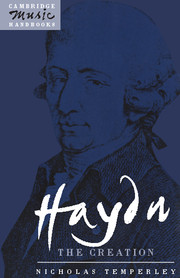Book contents
2 - Theology
Published online by Cambridge University Press: 05 June 2012
Summary
In this age we are inclined to treat sacred and secular music on the same footing: as entertainments for our leisure hours, whether in theatre, concert hall or living room. But for a believer, sacred music must always be more than an entertainment, for it deals in matters of life and death. A serious opera may overwhelm the audience's feelings and, for a few hours, give them the illusion that they are participating in heroism or tragedy of the highest order; but it is all over when they wake up the next morning. For non-believers an oratorio has a similar effect, but religious persons may find that it bears on important moral decisions in their own lives, of their relations with their God, and on their hopes for salvation.
In studying religious works, therefore, one should always consider the theological context. Many are written for a specific use as a part of public worship; others can be thought of as personal expressions of the composer's religious feeling. As a rule, an oratorio fits neither of these categories; it constitutes instead a public expression of the religious feeling of a society, whether in narrative, dramatic or contemplative form.
Although Haydn's contribution to The Creation obviously far outweighs that of the unidentified librettist in artistic importance, it is the libretto that chiefly determines its theological character.
- Type
- Chapter
- Information
- Haydn: The Creation , pp. 9 - 18Publisher: Cambridge University PressPrint publication year: 1991

